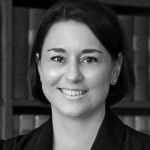
This means that the traditional make up of a family is no longer clear cut and the law has to keep up with significant social and cultural changes in society making the definition of parents and families so much more complex.
Many parents who use formal or informal sperm donors or conceive a child outside of a married or de-facto relationship, want to know whether sperm donors have any parental rights once their child is born.
There are a number of relevant laws in place in New South Wales, but in summary a sperm donor is presumed to not be a parent of a child unless married or in a de-facto relationship with the mother at the time of conception.
The case of Masson, Parsons and Parsons is due to be heard by the High Court and concerns a lesbian couple who conceived a child using a sperm donor known to them. Perhaps more uniquely, the sperm donor has played an active role in the child’s life and was referred to as “daddy” by the child. He was also listed on the child’s birth certificate as the father and all parties agreed that the sperm donor would have a parenting role. Furthermore, the lesbian couple were not in a de-facto relationship at the time the child was conceived.
The mothers (the lesbian couple) sought to relocate to New Zealand with the child, therefore the sperm donor father opposed the relocation on the basis that he was a parent of the child for family law purposes and in this respect he had “equal shared parental responsibility of the child” (in conjunction with the mother), meaning that the mother was required to consult him, among other things, in regard to where the child lived.
The primary proceedings in the Family Court determined that the biological mother was a parent of the child, along with the sperm donor. The other ‘mother’ was not considered to be a parent. Naturally, the mothers appealed the decision.
The full appeal court of the Family Court overturned the decision and found that the sperm donor was not a parent due to the operation of the New South Wales law and the limitation of the Family Law Act 1975 to define a parent.
The matter has since been appealed to the High Court and is due to be heard on 16 April 2019. The father will argue that state law does not apply and that the definition of a “parent” is a question of fact in which biological and social factors, as well as a parent’s conduct should be considered to determine whether a person is a parent.
The Attorney General has also intervened in the proceedings and submitted that the definition of a parent under the family law legislation should be widened to include sperm donors.
As you can see, the law associated with children can be complicated. You should seek legal advice if you wish to embark on artificial conception particularly in light of the High Court case.
At Everingham Solomons we have the expertise and experience to assist you with specialised family law matters because Helping You is Our Business.
Click here to learn more about Sophie Newham.
